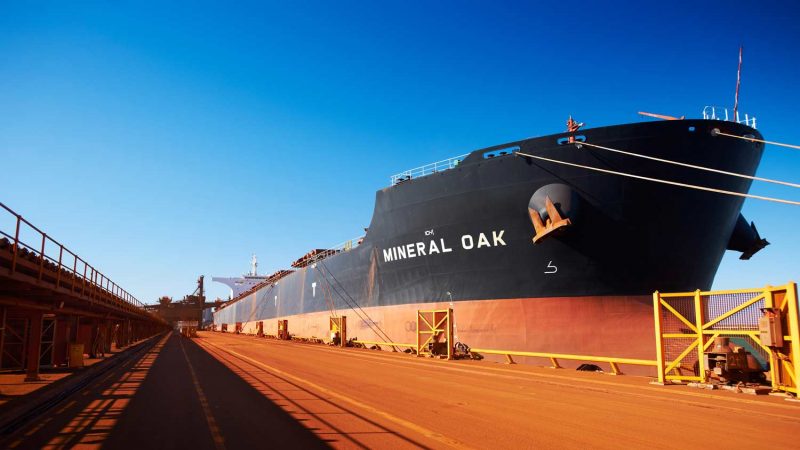Australian iron ore miners cautious on China’s plan to centralize buying

China’s plan to centralize iron ore purchases has prompted questions about whether the move could hit the bottom lines of global mining giants, such as Australia’s Rio Tinto and BHP Group.
China, exposed to international prices of the steelmaking raw material as it must import nearly 80% of its annual consumption of about 1.2 billion tonnes, launched a new state-backed resources company on Tuesday.
The China Mineral Resources Group, with registered capital of 20 billion yuan ($3 billion), is tasked with investment in mining of minerals, as well as trading and purchasing, said Tianyancha, a Chinese online database of company information.
Global mining giants such as Rio, BHP and Fortescue Metals Group have refused to comment on the plans but said there was no change in their relations with Chinese customers.
Fortescue supplies iron ore to customers under long-term contracts, Chief Executive Elizabeth Gaines said.
“We will continue to work closely with our customers and other key stakeholders in China to … optimize our distribution channels to meet the needs of our long-standing customers and the Chinese steel industry,” Gaines said.
China accounted for 90% of Fortescue’s revenue in the 2021 financial year.
The new company is expected to coordinate procurement of imported iron ore, develop domestic iron ore resources, and oversee development of mines overseas, the online database added.
Chinese business outlet Caixin also said this month that the body would centralise iron ore demand.
However, history showed plans for centralized iron ore purchases did not work, said BHP, the world’s third largest producer of iron ore which sells the bulk of its output to China.
“At the end of the day, we believe that markets will sort out where the price needs to be based on supply and demand,” Chief Financial Officer David Lamont told a business forum in Melbourne.
BHP led efforts more than a decade ago to end annual iron ore price-setting talks in a shift to market-based pricing.
Rival Anglo-Australian miner Rio Tinto declined to comment.
Still, a centralized approach to purchases seems likely to be more successful now than two decades ago, said Commonwealth Bank commodities analyst Vivek Dhar.
“That’s largely because of the recent consolidation among China’s state‑owned steel producers,” he added.
“Further, the nationwide success of reducing steel production in the second half of 2021 provides hope that the steel sector can act in a unified way.”
The impact of centralized purchases on top miners depends on the agency’s ultimate objective, however, said Glyn Lawcock, head of mining research at Barrenjoey.
“The comments over the last few years clearly indicate that China is not happy with iron ore prices over $100 a tonne,” Lawcock said.
Yet the short-term impact of centralized buying may be limited, as a long tail of private steel producers operates in China, he added.
“I don’t think a buyers’ club will have an impact in the short-term market, which is still very much driven by supply and demand.”
($1=6.7593 Chinese yuan renminbi)
(By Praveen Menon; Editing by Clarence Fernandez)
More News
Contract worker dies at Rio Tinto mine in Guinea
Last August, a contract worker died in an incident at the same mine.
February 15, 2026 | 09:20 am
{{ commodity.name }}
{{ post.title }}
{{ post.date }}




Comments
Subrata Mukhopadhyay
It’s a very source of industry informations.